Are you fascinated by the Earth's natural history? These are the geology museums you should visit in North Rhine – Westphalia:
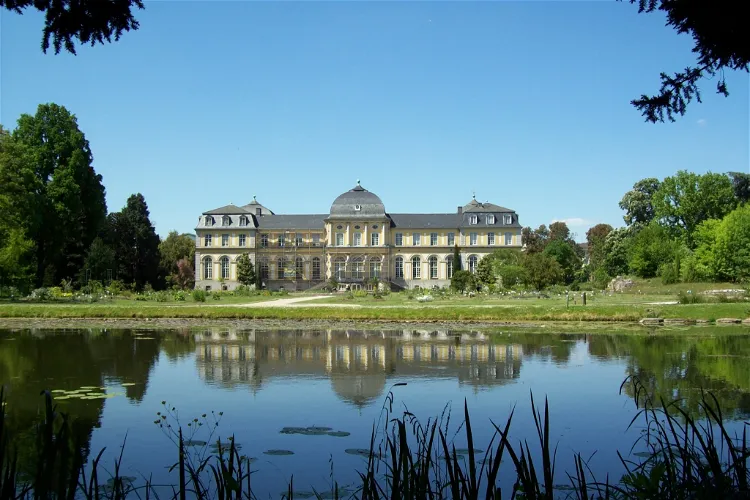
Poppelsdorf Palace
BonnPoppelsdorf Palace, located in the Poppelsdorf district of Bonn, western Germany, is a Baroque building that is now part of the University of Bonn. This historical structure adds a touch of elegance and grandeur to the university campus, making it a point of interest for visitors.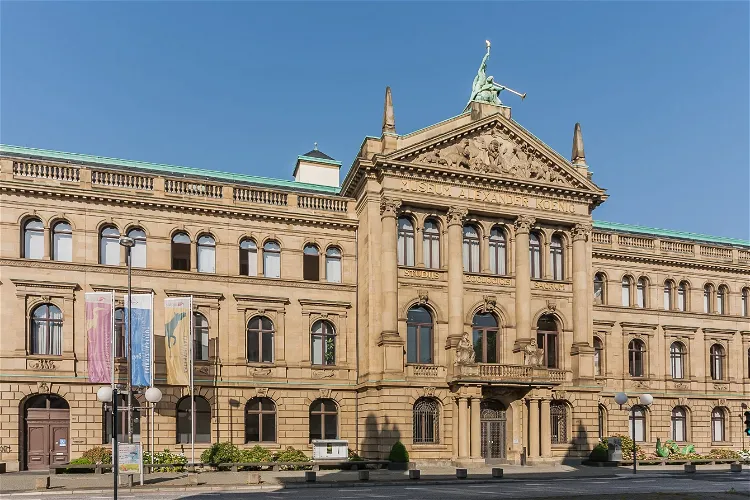
Alexander Koenig Zoological Research Museum
BonnThe Alexander Koenig Zoological Research Museum, located in Bonn, Germany, is a renowned natural history museum and zoological research institution. The museum is named after Alexander Koenig, a private scholar and passionate collector of specimens, who generously donated his collection to the institution. This collection forms the basis of the museum's exhibits and has been instrumental in its research endeavors.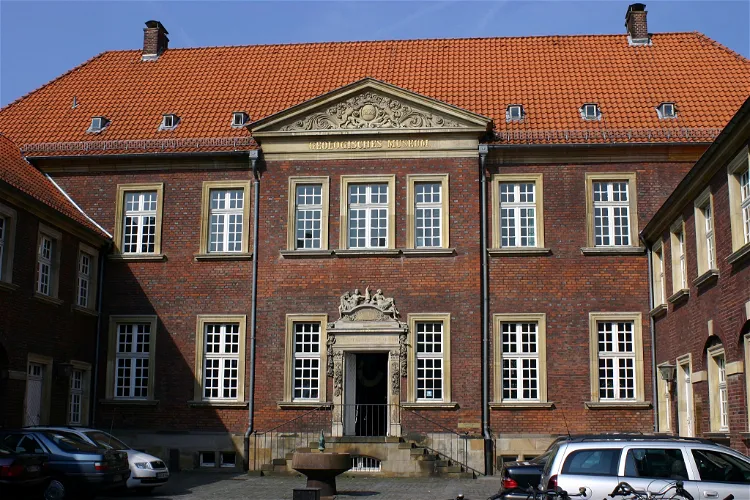
Geomuseum der Universität Münster
MünsterThe Geomuseum of the University of Münster, situated in the Westphalian city of Münster, is a historical institution that has been open since 1824. It is known for its extensive collection of fossils from different geological eras, making it a fascinating destination for those interested in paleontology and earth history.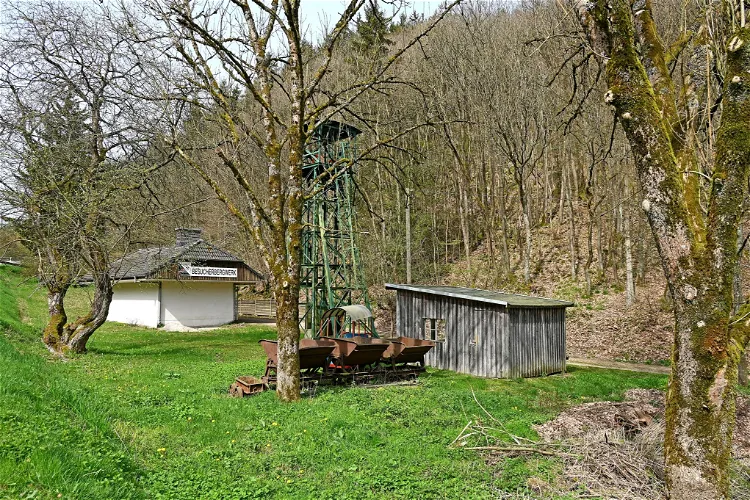
Grube Wohlfahrt
ZehnstelleGrube Wohlfahrt is a former lead ore mine situated in Rescheid, a part of the Hellenthal municipality, in the Euskirchen district of North Rhine-Westphalia. This historical site offers a unique insight into the mining industry of the past, making it an interesting destination for those interested in history and geology.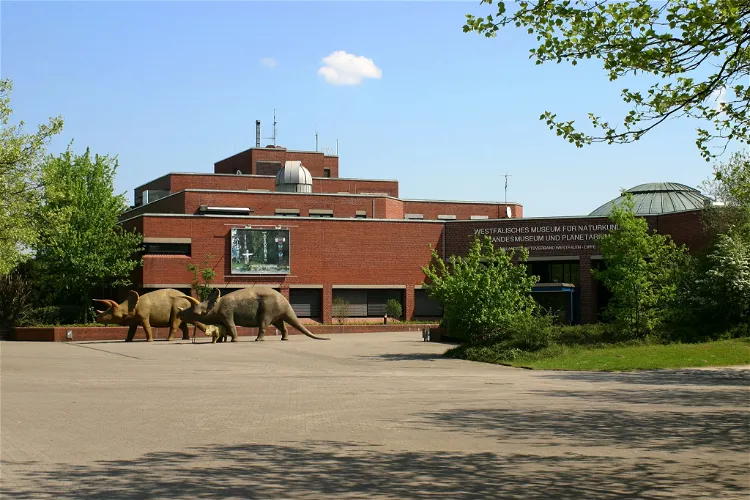
Westphalian Museum of Natural History
MünsterThe LWL-Museum für Naturkunde, also known as the Westphalian Museum of Natural History, is a state museum located in Münster. It is under the sponsorship of the Landscape Association of Westphalia-Lippe (LWL). The museum is a significant cultural and educational institution in the region, offering a wide range of exhibits and programs related to natural history.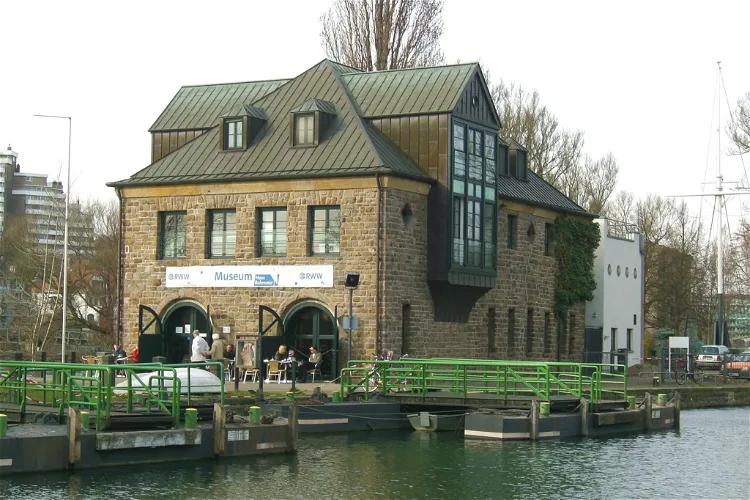
Haus Ruhrnatur (Naturkundemuseum)
Mülheim an der RuhrThe Haus Ruhrnatur museum focuses on the theme of 'Water'. It showcases the Ruhr ecosystem through various exhibits including fish from the Ruhr, small animals under the microscope, and sensory experiences such as sounds and smells. This provides a unique and interactive way for visitors to learn about the local ecosystem.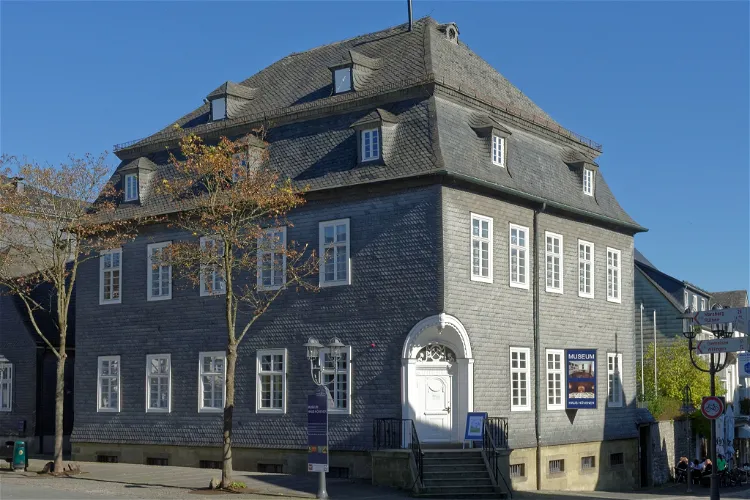
Museum Haus Hövener
BrilonThe Museum Haus Hövener is a local history museum situated in the historic and protected Haus Hövener in Brilon. This museum offers a deep dive into the history of the region, making it a fascinating destination for history enthusiasts.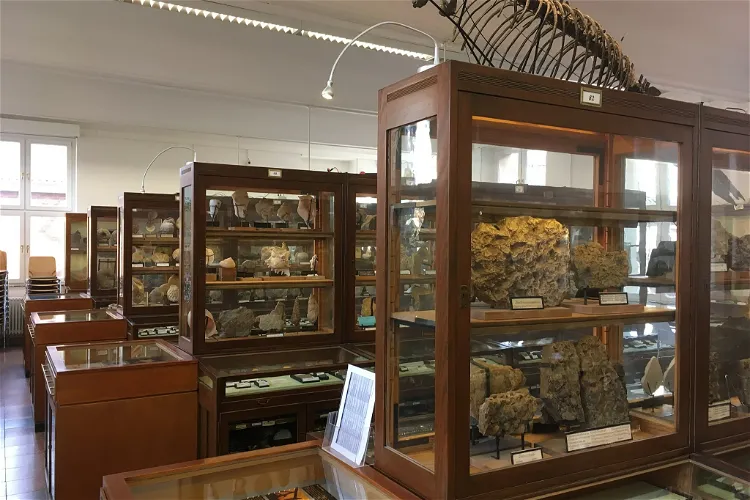
Goldfuß-Museum
BonnThe Goldfuß Museum is conveniently located on the first floor of the Steinmann Institute at Nußallee 8 in Bonn. This central location makes it easily accessible for tourists and locals alike.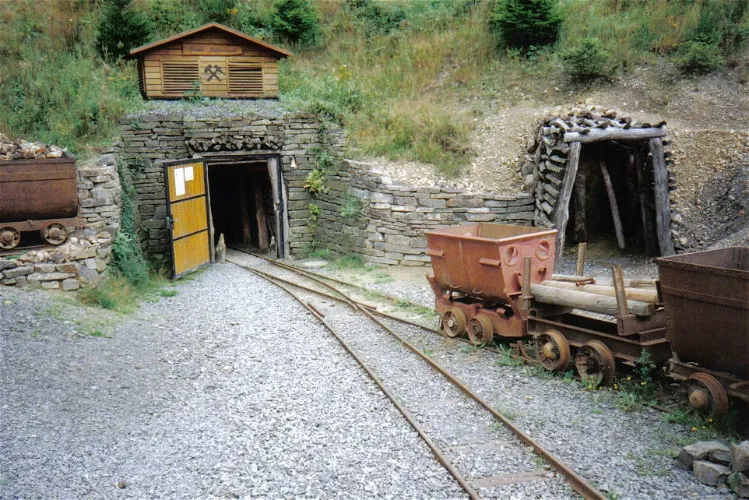
Besucherbergwerk Grube-Silberhardt
WindeckThe Grube Silberhardt, located in Öttershagen, a district of Windeck, is a historical ore mine that was reopened as a visitor mine on September 13, 2003. This site offers a unique opportunity for visitors to explore the history and workings of a former ore mine.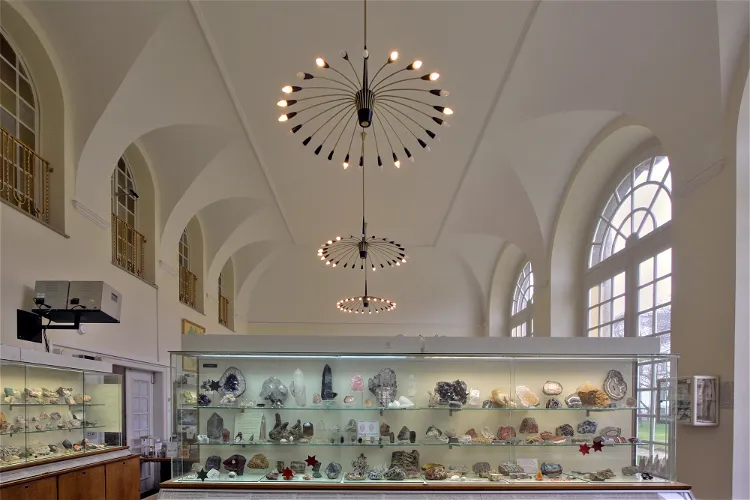
Mineralogisches Museum der Universität Bonn
BonnThe Mineralogical Museum of the University of Bonn is a unique museum dedicated to minerals and is situated in the historic Poppelsdorfer Castle. This location not only provides a rich historical backdrop for the museum but also adds to the overall experience of the visitors.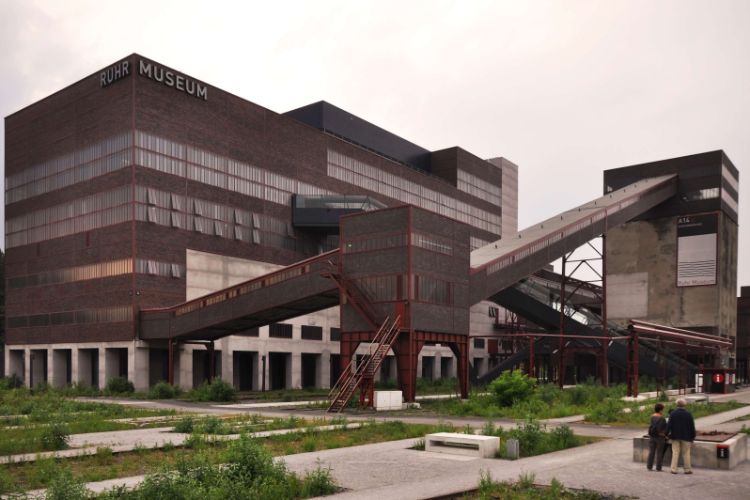
Ruhr Museum Essen
EssenThe Ruhr Museum is a natural history and cultural history museum for the Ruhrgebiet (the Ruhr area) in Essen. In the permanent exhibition in the museum, it documents nature, culture and history of the Ruhr area and thus the development of the largest agglomeration in Europe.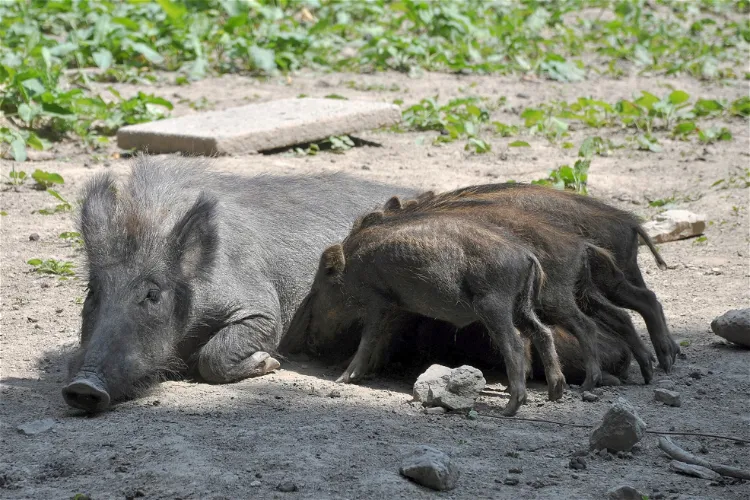
Waldau Wildgehege
BonnThe Waldau is home to various wildlife species. Among them are the tawny owl, Bechstein's bat, fallow deer, badger, common toads, and grass snakes. These species contribute to the rich biodiversity of the area, making it a fascinating destination for nature enthusiasts.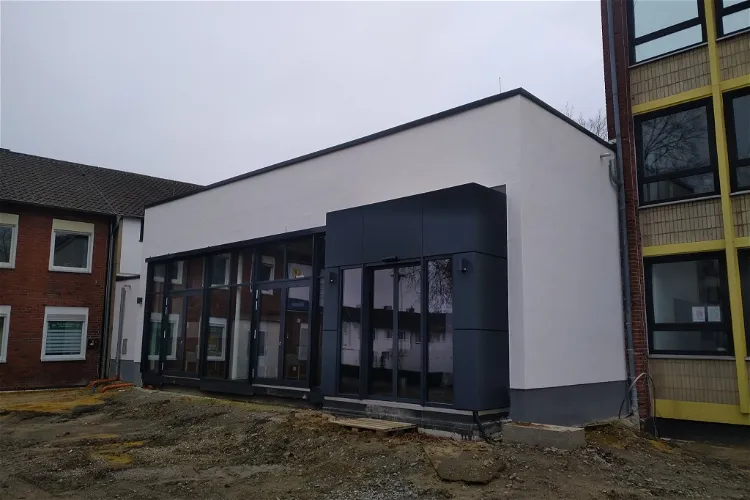
Stadtmuseum Bergkamen
BergkamenThe Stadtmuseum Bergkamen, established in 1965, is situated in the Oberaden district of the city of Bergkamen. This museum is a significant cultural center in Bergkamen, offering a rich collection of historical and contemporary exhibits.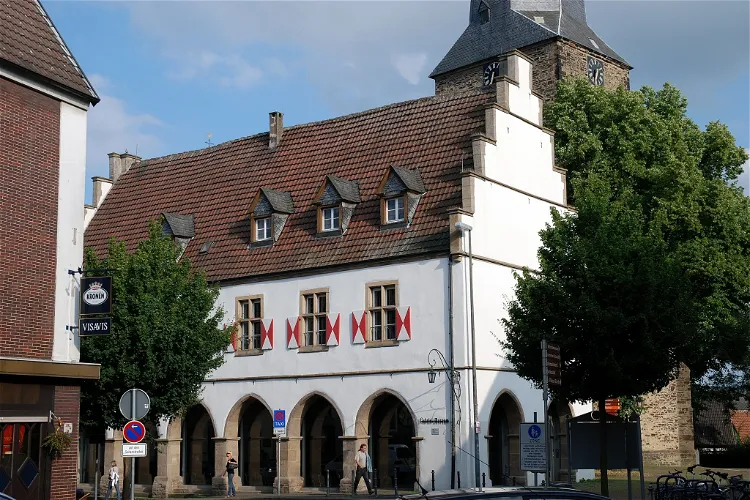
Ruhrtalmuseum
SchwerteThe Ruhrtalmuseum is a local history museum situated in the 'Old Town Hall' in Schwerte. This location adds a historical charm to the museum, making it a unique destination for tourists interested in local history and architecture. The building itself was constructed during the Middle Ages and served various purposes, including a town hall and a residence for the town's night watchman.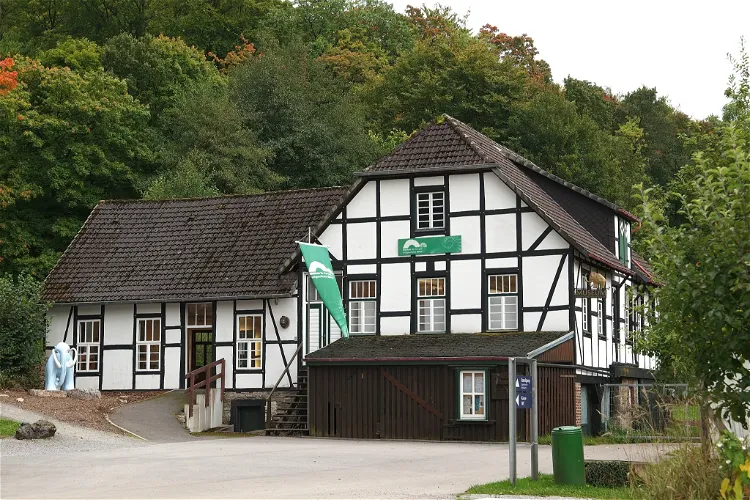
Museum für Vor- und Frühgeschichte
BalveThe Museum für Vor- und Frühgeschichte is an archaeological museum situated in the city of Balve, within the Märkischen Kreis region. It offers a unique opportunity to delve into the past and explore the rich archaeological history of the area.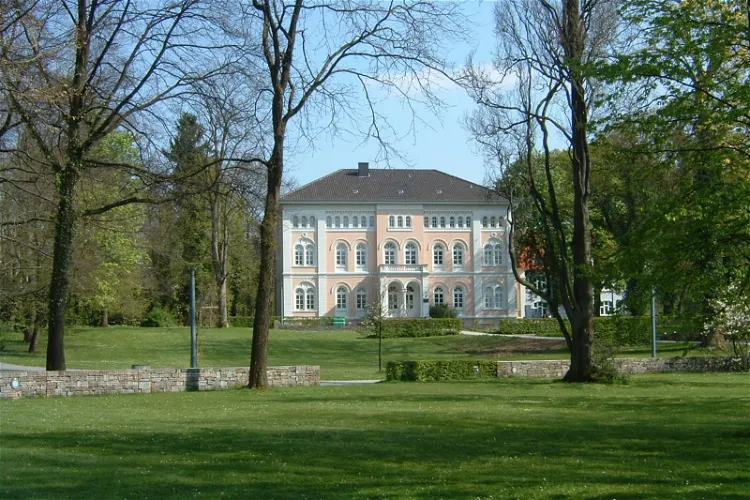
NABU Natur-Infozentrum Senne im Prinzenpalais
Bad LippspringeThe Prinzenpalais is home to the NABU Nature Information Centre Senne, which features an exhibition. This provides an opportunity for tourists to learn about the local environment and its conservation efforts. The exhibition is a great way to engage with the region's natural history and current environmental initiatives.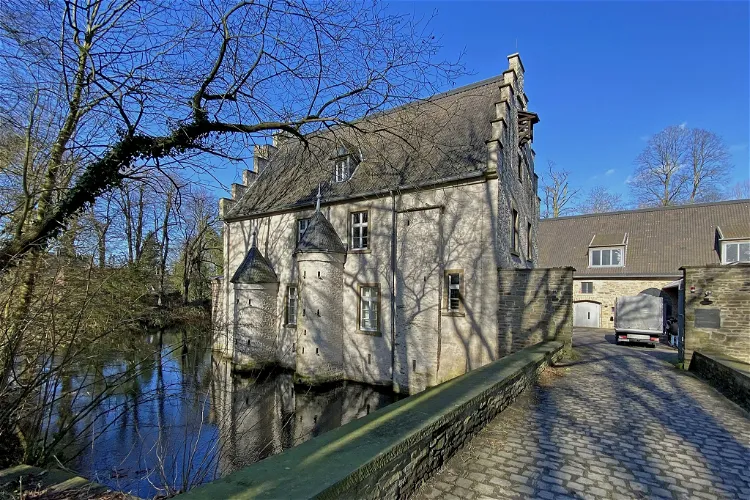
Museum für Ur- und Frühgeschichte
HagenThe Wasserschloss Werdringen is a water castle located in Hagen Vorhalle, near the Ruhr on the Harkortsee below the Kaisberg. This historic site is not just a castle, but also houses the regional Archaeology Museum Hagen in one of its outbuildings. This makes it a unique destination for those interested in both history and archaeology.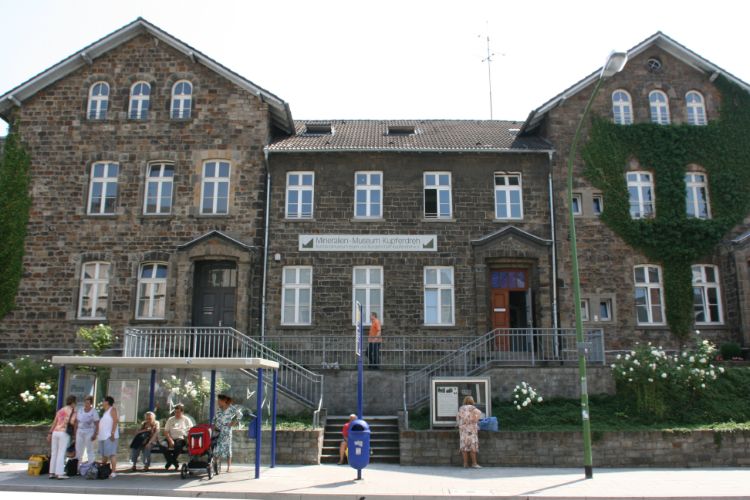
Mineralien-Museum Essen-Kupferdreh
EssenThe Mineralien Museum (the Mineralogy Museum) is a museum in Essen that hosts an impressive collection of minerals that used to be private. The minerals are presented in various thematic exhibitions.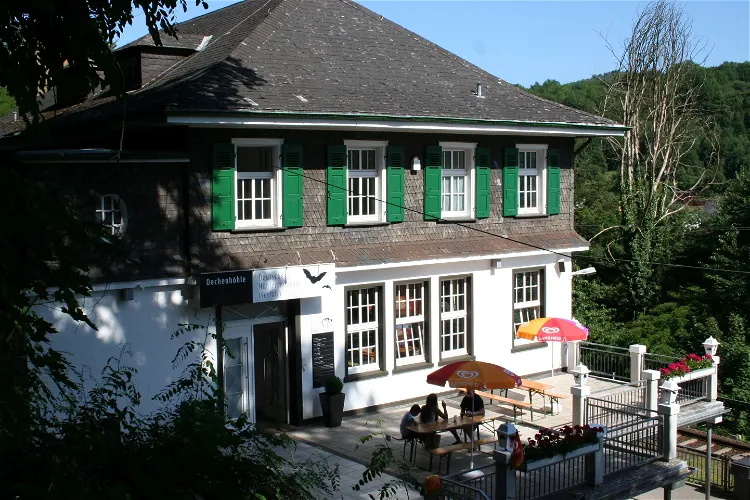
Deutsches Höhlenmuseum
IserlohnThe Deutsches Höhlenmuseum Iserlohn, situated in the Grüne district of Iserlohn, holds the distinction of being the largest German museum dedicated to speleology. This museum offers a comprehensive exploration of caves and their associated sciences, making it a unique destination for those interested in geology, archaeology, and natural history.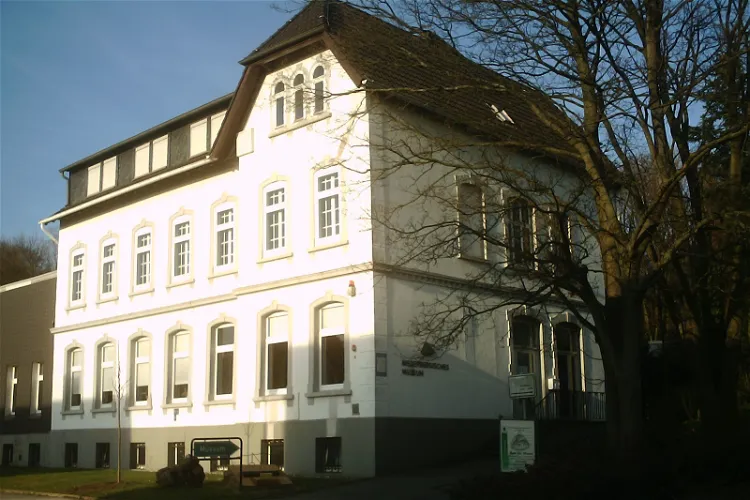
Niederbergisches Museum
WülfrathThe Niederbergisches Museum in Wülfrath is a local history museum that provides insights into the life, work, and the limestone industry of the region. It also showcases related geological and paleontological findings. This museum offers a unique opportunity to understand the local history and culture of Wülfrath and the Niederberg region.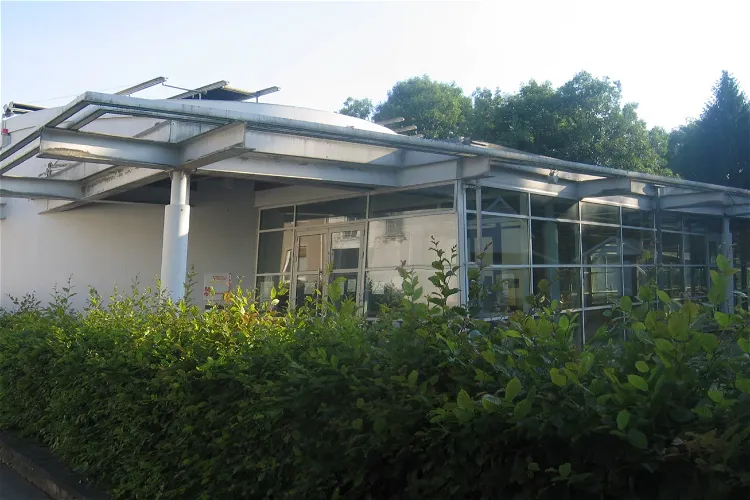
Dobergmuseum
BündeThe Dobergmuseum, located in the East Westphalian city of Bünde, is a geological museum that primarily showcases fossils found in the nearby Doberg. This makes it a unique destination for those interested in geology and paleontology, offering a glimpse into the Oligocene era through its extensive collection of fossils.
Museum für Naturkunde
DortmundThe Museum für Naturkunde is a natural history museum in Dortmund. The focus of the museum's collection is on exhibits from the fields of biology, geology and paleontology. The zoological exhibition shows local fauna and flora with some extra focus on mushrooms. The museum also features an aquarium- 23
Museum Zurholt
AltenbergeThe Museum Zurholt, also referred to as the Mineral and Fossil Museum Zurholt, is a geological museum located in Altenberge, Kreis Steinfurt, North Rhine-Westphalia. The museum has been operational since 2010 and offers a unique insight into the geological history of the region. - 24
GeoMuseum - University of Cologne
CologneThe GeoMuseum - University of Cologne is the only natural history museum in Cologne. The museum holds and exhibits a collection that includes minerals, gemstones, meteorites and fossils.